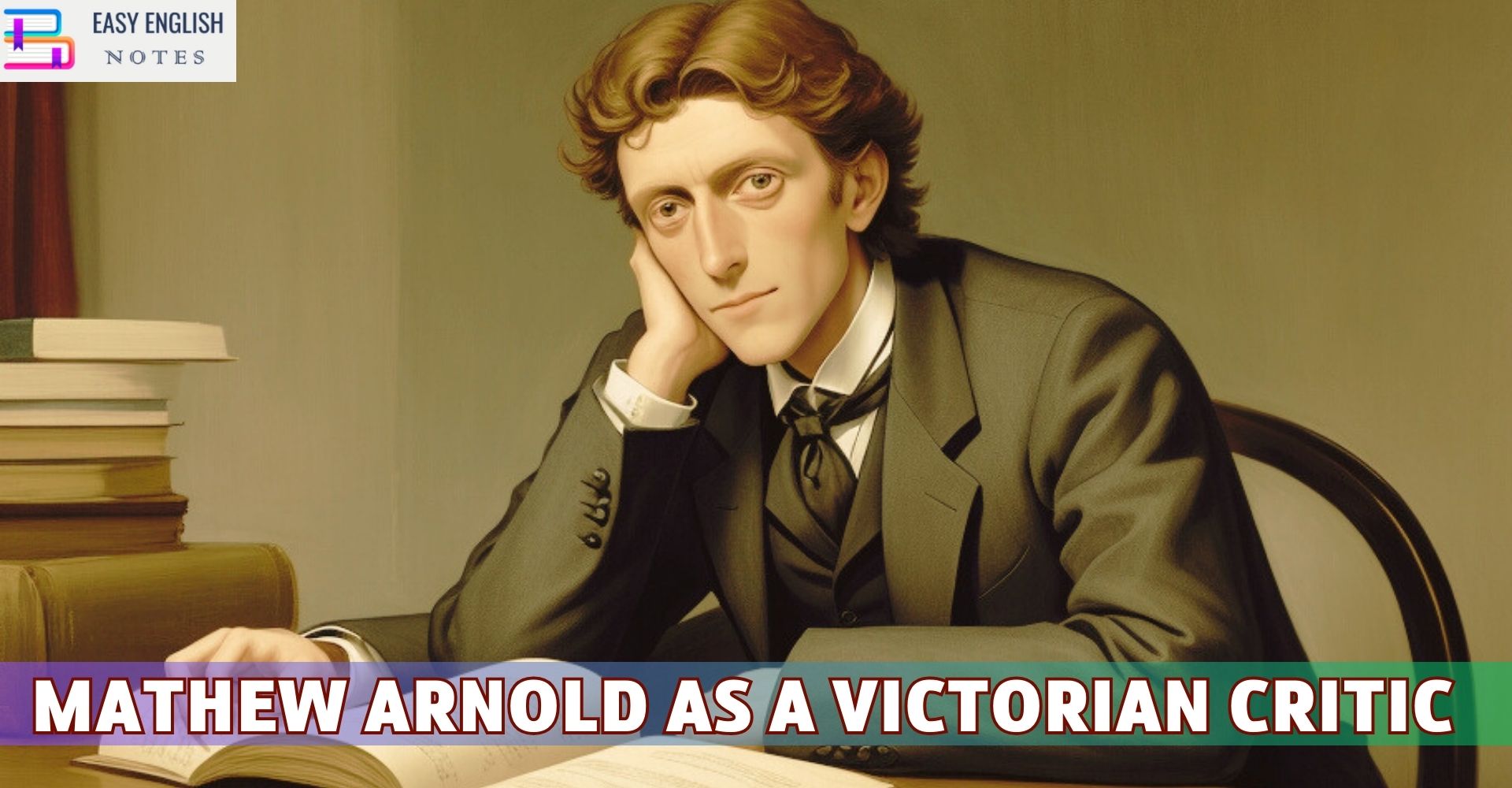Mathew Arnold is a Victorian critic. As a critic he has sound, penetrating judgement. he has sought to propagate in his Essays in Criticism. He lays down sound principles of Criticism, distinguishing between historic, personal and real estimates, defining what poetry is. and how it is to be correctly valued. He adopts the test of great poetry. laid down by Aristotle, that is to say poetry should possess a higher truth and a higher seriousness than history. He discovers his seriousness in the great Greek poets and he holds by it. Both Shakespeare and Milton have note of high seriousness- Milton almost constantly, while Shakespeare with occasional lapses into conceits and far-fetched expressions. It will, indeed be high standard by which to judge poetry. It exhibited in the happy union of thought and expression. which seems to carry our minds beyond our- selves, and which seems to be a new revelation to us. Arnold quotes lines and phrases from poets as illustrations of this great truth, as he conceives it to be. He evolves his principle of criticism from his study of the ancients and he recommends them to be followed by the critics of his time. The historic or personal estimate often radiates criticism and he desires all critics to guard against it. He lays down the main principles of criticism in “The study of Poetry” and also shows their general application. When he reviews the Essays in Criticism, he repeats again and again those principles, and enforces them in his Judgements. From this it seems that he has the purpose of a propagandist.
As a critic he might not have discovered any strikingly new truths or principles, but he has certainly discovered them by his study of ancients and by his own reflections and he puts them on a sound footing by his practice of these principles. The real estimate he defines and proposes, seems to suggest and absolute standard which it may often prove to be difficult to follow. But he sets the very ideal that critic should strive after. And he has done a good service as such end he deserves to be highly esteemed as a critic for this service alone. We know that individual idiosyncrasies have to play large part in a critic. The true aim of a critic will be achieved he can rise above these idiosyncrasies. Arnold shows indeed the right line of criticism in his insisting on the real estimate.
Also Read :
- Compare Hamlet with Macbeth, Othello and other Tragedies
- “The Pardoner’s Tale” is the finest tale of Chaucer
- Prologue to Canterbury Tales – (Short Ques & Ans)
- Confessional Poetry – Definition & meaning
- Line By Line Explanation Of The Poem The Eve of St. Agnes
His definition of poetry as a criticism of life has been objected to by some critics. But he clearly states what he means by it. “The grand power of poetry is its interpretative power. This is all what he means by criticism of life. Poetry must appeal to the imagination or the “imaginative reason” as Arnold puts it and it is the interpretative power of poetry, or its criticism of life that will call forth the imagination in the reader, and the high seriousness which is the outstanding characteristic of the master mind is an important factor in producing this effect. Arnold, then, appears to be Tight in his definition of poetry and the test he proposes of the greatness and excellence of poetry, though the phrases used by him seem to be a little unconventional from which rises the demur of some critics.
Arnold might have restated the old truths and principles of criticism, and that very clearly and emphatically, but his greatness as a critic, as an original critic. too remains unquestioned. So. Herbert W. Paul writes, “Mathew Arnold’s literary criticism, once regarded by young enthusiasts as revelations, has long since taken a secure place in English letters. Like his poetry, unlike his theology and his politics, it has original and intrinsic value. It is penetrating as well as brilliant conscientious as well as imaginative…. He reminded, or informed the British public that criticism was a serious thing, that good criticism was just as important as good authorship: that it was not a question of individual taste but partly received authority, and partly of trained judgement.” Saintsbury too recognizes the greatness of Arnold as a critic, though he confesses that he disagrees with some of his critical canons. He write that there are “Critics very much greater in originality, greater in catholicity, perhaps greater in felicity of individual utterance,” and yet he finds that he is of their race and lineage. He is great as a critic, and it may not be denied that he wanted to propagate the true and sound principles of criticism, and to popularize them. His aim was to reform theun-co-ordinated and contradictory and individualistic principles of criticism prevalent in his day. It was the right moment that one like Arnold, should formulate the sound and legitimate principles of criticism.
PLEASE HELP ME TO REACH 1000 SUBSCRIBER ON MY COOKING YT CHANNEL (CLICK HERE)











